For some reason, the Oscar nominations were not presented in front of a live audience this morning. Pre-taped bits with past Oscar winners like Jennifer Hudson (best supporting actress, 2010 for Dreamgirls) and Brie Larson (best actress 2016, for Room) preceded an automated list announcing the Oscar nominations for 2016’s best movies, interrupted with a commercial for itself. The Academy Awards will take place February 26th, hosted by Jimmy Kimmel. I just realized that I won’t be in the room to win my Oscar pool this year – Sean and I will be in Philadelphia, perhaps not even watching the ceremony!
An accounting firm called PricewaterhouseCoopers has taken care of the Academy balloting process for over 80 years. They send out the nomination forms in December and tabulating them in January takes about 1700 hours. There are over 6000 voting members of the Academy, and they’re all industry professionals. Each branch has different rules as to who can become a member – visual effects supervisors have to be active for a certain number of years, while an

actor must have a credited role in at least 3 films, and a writer should have at least 2 credits, and all must have “achieved distinction” in the motion picture arts and sciences. The tricky part is that you can only be a member of one branch, so someone like Ben Affleck has to decide whether he wants to be there as an actor, a director, or a writer. Each category votes only for itself – on editors can decide who will be nominated for best editing, and only actors vote for best actors nominees. Everyone can vote for best picture, however.
For a film to be considered, it has to meet some basic requirements: it must be over 40 minutes, it must have had at least a 7-straight-day run at a paid-admission L.A. theatre, and it can’t have debuted on television or the internet.
When an Academy member receives a ballot, they get to list their 5 nominee choices in order of preference, and are encouraged to “follow their heart”. The ballots are counted by hand, and the accounting firm looks for the “magic number” – the number of mentions it takes to turn a name into a nomination. The formula they use is: total # of ballots, divided by total possible nominees plus 1. So for Best Director, say you have 600 ballots, and you get to have 5 nominees (plus 1 = 6), that’s 600 divided by 6, or 100 ballots to become a nominee.
The counting starts based on a voter’s first choice until someone reaches the magic number. Once Damian Chazelle (for example), reaches the magic number, all the ballots that had him as first choice will be set aside. The director with the fewest first-place votes is automatically knocked out, and those ballots are redistributed based on the voters’ second choice (the directors still in the running keep their calculated votes from the first round). Once the nominees are announced today, the accounting firm will now send out new ballots and everyone can vote in all categories for the actual awards, although people are discouraged from voting for categories that they don’t understand.
Now on to the nominations!
Best Picture
Arrival
Fences
Hacksaw Ridge
Hell Or High Water
Hidden Figures
La La Land
Lion
Manchester By The Sea
Moonlight
Best Director
Denis Villeneuve – Arrival

Mel Gibson – Hacksaw Ridge
Damien Chazelle – La La Land
Kenneth Lonergan – Manchester By The Sea
Barry Jenkins – Moonlight
Best Actor
Casey Affleck, Manchester By the Sea
Andrew Garfield, Hacksaw Ridge
Ryan Gosling, La La Land
Viggo Mortensen, Captain Fantastic
Denzel Washington, Fences
Best Actress
Ruth Negga, Loving
Isabelle Huppert, Elle
Natalie Portman, Jackie
Emma Stone, La La Land
Meryl Streep, Florence Foster Jenkins
Supporting Actor
Lucas Hedges, Manchester By The Sea
Jeff Bridges, Hell or High Water
Michael Shannon, Nocturnal Animals
Dev Patel, Lion
Mahershala Ali, Moonlight
Cinematography
Arrival (Bradford Young)
La La Land (Linus Sandgren)
Lion (Greig Fraser)
Moonlight (James Laxton)
Silence (Rodrigo Prieto)
Documentary
Fire At Sea
I Am Not Your Negro
Life, Animated
OJ: Made In America
13th
Documentary Short
Extremis
4.1 Miles
The White Helmets
Watani: My Homeland
Joe’s Violin
Foreign Language Film
Land of Mine
A Man Called Ove
The Salesman
Tanna
Toni Erdmann
Live Action Short
Ennemis Entreniers
La Femme et le TGV
Silent Nights
Sing
Timecode
Sound Editing
Arrival
Deepwater Horizon
Hacksaw Ridge
La La Land
Sully
Sound Mixing
Arrival
Hacksaw Ridge
La La Land
Rogue One
13 Hours: The Secret Soldiers of Benghazi
Production Design
Arrival
Fantastic Beasts and Where to Find Them
Hail, Caesar
La La Land
Passengers
Visual Effects
Deepwater Horizon
Doctor Strange
The Jungle Book
Kubo And the Two Strings
Rogue One: A Star Wars Story
Costumes
Allied (Joanna Johnston)
Fantastic Beasts (Colleen Atwood)
Florence Foster Jenkins (Consolata Boyle)
Jackie (Madeline Fontaine)
La La Land (Mary Zophres)
Original Screenplay
Hell or High Water (Taylor Sheridan)
La La Land (Damien Chazelle)
The Lobster (Yorgos Lanthimos, Efthimis Filippou)
Manchester By the Sea (Kenneth Lonergan)
20th Century Women (Mike Mills)
Adapted Screenplay
Arrival (Eric Heisserer)
Fences (August Wilson)
Hidden Figures (Allison Schroeder and Theodore Melfi)
Lion (Luke Davies)
Moonlight (Screenplay by Barry Jenkins; Story by Tarell Alvin McCraney)
Makeup & Hairstyling
A Man Called Ove (Eva von Bahr and Love Larson)
Star Trek Beyond (Joel Harlow and Richard Alonzo)
Suicide Squad (Alessandro Bertolazzi, Giorgio Gregorini and Christopher Nelson)
Original Score
Jackie (Mica Levi)
La La Land (Justin Hurwitz)
Lion (Dustin O’Halloran and Hauschka)
Moonlight (Nicholas Britell)
Passengers (Thomas Newman)
Original song
Audition – La La Land
Can’t Stop the Feeling – Trolls
City of Stars – La La Land
The Empty Chair – Jim: The James Foley Story
How Far I’ll Go – Moana
Animated
Kubo And the Two Strings
Moana
My Life As A Zucchini
The Red Turtle
Zootopia
Animated Short
Blind Vaysha
Borrowed Time
Pear Cider and Cigarettes
Pearl
Piper
Editing
Hacksaw Ridge (John Gilbert)
Arrival (Joe Walker)
Hell or High Water (Jake Roberts)
La La Land (Tom Cross)
Moonlight (Nat Sanders and Joi McMillon)
Supporting Actress
Viola Davis, Fences
Naomie Harris, Moonlight
Nicole Kidman, Lion
Octavia Spencer, Hidden Figures
Michelle Williams, Manchester By the Sea
Wow, we’ve seen a lot of these! What have you seen, loved, hated, felt was overhyped? Surprises?
 The titular Alita (the Battle Angel, as it were) is found by Dr. Ido (Christoph Waltz) in an Iron City garbage heap. Well, Alita’s head and shoulders are, but the rest of her body is missing. Turns out, Alita is a 300 year old cyborg from before the “Fall” and Dr. Ido really easily brings her back to “life”. Like, it’s no trouble whatsoever for him to reboot her, and you might wonder why no one else has tried for the last 300 years. But don’t, because if you start asking questions like that about this movie, you will never be able to stop. Trust me.
The titular Alita (the Battle Angel, as it were) is found by Dr. Ido (Christoph Waltz) in an Iron City garbage heap. Well, Alita’s head and shoulders are, but the rest of her body is missing. Turns out, Alita is a 300 year old cyborg from before the “Fall” and Dr. Ido really easily brings her back to “life”. Like, it’s no trouble whatsoever for him to reboot her, and you might wonder why no one else has tried for the last 300 years. But don’t, because if you start asking questions like that about this movie, you will never be able to stop. Trust me.
 have converted any of the first-time watchers as the show felt listless and low energy without a host or opening number. Many of the presenters were good – I like the John Mulaney-Awkwafina pairing, and of course Amy Poehler, Maya Rudolph and Tina Fey, though I think the win goes to Melissa McCarthy and Brian Tyree Henry who really went balls-out in paying tribute to costumers (and kudos to the costume designer in charge of her cape who actually got every single one of those bunnies to stand up).
have converted any of the first-time watchers as the show felt listless and low energy without a host or opening number. Many of the presenters were good – I like the John Mulaney-Awkwafina pairing, and of course Amy Poehler, Maya Rudolph and Tina Fey, though I think the win goes to Melissa McCarthy and Brian Tyree Henry who really went balls-out in paying tribute to costumers (and kudos to the costume designer in charge of her cape who actually got every single one of those bunnies to stand up). Irene Cara won for cowriting Flashdance. Both wins come courtesy of juggernaut
Irene Cara won for cowriting Flashdance. Both wins come courtesy of juggernaut 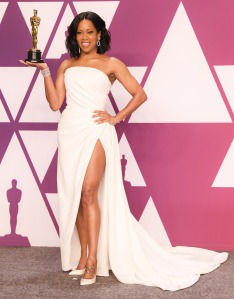 supporting one since he has pretty equal screen time to Viggo, but his award is deserved – not only was it the best and only good thing in an otherwise shitty movie, he ran a very gracious and thoughtful campaign. So did Malek, which is probably what pulled him out ahead of Christian Bale, who probably turned in the more effortful performance as Dick Cheney in
supporting one since he has pretty equal screen time to Viggo, but his award is deserved – not only was it the best and only good thing in an otherwise shitty movie, he ran a very gracious and thoughtful campaign. So did Malek, which is probably what pulled him out ahead of Christian Bale, who probably turned in the more effortful performance as Dick Cheney in  the emotional anchor. And oh boy is she emotional! It’s such a forceful, impassioned performance. Truly deserving, even if poor Close has now lost 7 times and won 0 – a dismal track record, and she’s the got the dubious title of most nominated but never winning actor – male or female.
the emotional anchor. And oh boy is she emotional! It’s such a forceful, impassioned performance. Truly deserving, even if poor Close has now lost 7 times and won 0 – a dismal track record, and she’s the got the dubious title of most nominated but never winning actor – male or female. for sure. I think
for sure. I think 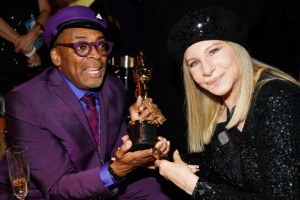 Interestingly, the American Society of Cinematography gave its highest award to Cold War’s Łukasz Żal, but that’s because Cuaron, a director, is not a part of this guild. Cuaron is the first person to be personally nominated for 4 Oscars for a single film (best foreign language is not personal, but awarded to a country), the fourth being for his original screenplay, which he lost in a tragic incident I don’t even want to get into. Anyhow, in presenting the award for cinematography,
Interestingly, the American Society of Cinematography gave its highest award to Cold War’s Łukasz Żal, but that’s because Cuaron, a director, is not a part of this guild. Cuaron is the first person to be personally nominated for 4 Oscars for a single film (best foreign language is not personal, but awarded to a country), the fourth being for his original screenplay, which he lost in a tragic incident I don’t even want to get into. Anyhow, in presenting the award for cinematography,  camera, not during the commercial break. Thank you, Academy.” You may recall that just a few weeks ago, the Academy said it would hand out several awards, including this one, during commercial breaks, but had to rescind its decision due to the wrath of nearly everyone.
camera, not during the commercial break. Thank you, Academy.” You may recall that just a few weeks ago, the Academy said it would hand out several awards, including this one, during commercial breaks, but had to rescind its decision due to the wrath of nearly everyone. discrepancy between best picture and best director wins. Members are asked to rank the best picture nominees from best to worst. This year there were 8 nominees, so the accountants made 8 piles and sorted all the ballots according to their #1 choices. If no movie has more than 50% of the votes, and with more than 5 nominees that’s practically impossible, then the smallest pile is removed. Let’s assume that Vice had the smallest pile. Now all the ballots that listed Vice #1 are re-sorted into piles according to who their #2 pick was. You can see why canny members are now voting strategically, and how the movie with the most #1 picks won’t necessarily be the winner. The win could easily go to the movie with the most #2 picks, which is weird, but that’s also how Americans pick their presidents, and we all know how well that turns out. So Green Book is the Donald Trump of best pictures.
discrepancy between best picture and best director wins. Members are asked to rank the best picture nominees from best to worst. This year there were 8 nominees, so the accountants made 8 piles and sorted all the ballots according to their #1 choices. If no movie has more than 50% of the votes, and with more than 5 nominees that’s practically impossible, then the smallest pile is removed. Let’s assume that Vice had the smallest pile. Now all the ballots that listed Vice #1 are re-sorted into piles according to who their #2 pick was. You can see why canny members are now voting strategically, and how the movie with the most #1 picks won’t necessarily be the winner. The win could easily go to the movie with the most #2 picks, which is weird, but that’s also how Americans pick their presidents, and we all know how well that turns out. So Green Book is the Donald Trump of best pictures. men. Solely by white men. Which is why so many of the Academy’s old white men felt comfortable voting for it. They could pat themselves on the back for being ‘diverse’ while still rewarding the status quo – for reframing the story of a black man’s experience into the perspective of his white driver. Never mind that director Peter Farrelly has a history of consulting his penis during meetings. And that writer Nick Vallelonga has said some weird Islamophobic shit, agreeing with Trump of all people, tweeting “100% correct. Muslims in Jersey City cheering when towers went down” – and that was still on his time line when he won the Golden Globe this year. Gross.
men. Solely by white men. Which is why so many of the Academy’s old white men felt comfortable voting for it. They could pat themselves on the back for being ‘diverse’ while still rewarding the status quo – for reframing the story of a black man’s experience into the perspective of his white driver. Never mind that director Peter Farrelly has a history of consulting his penis during meetings. And that writer Nick Vallelonga has said some weird Islamophobic shit, agreeing with Trump of all people, tweeting “100% correct. Muslims in Jersey City cheering when towers went down” – and that was still on his time line when he won the Golden Globe this year. Gross. Netflix, and for taking chances. And If Beale Street Could Talk is also completely worthy. It’s visual poetry. I was electrified, from the colours to the dialogue’s flow, and the story’s timeliness and timelessness. Perfection. And there are many other terrific movies besides: The Favourite is funny and incisive and beautifully acted; BlackKlansman is galvanizing wizardry;
Netflix, and for taking chances. And If Beale Street Could Talk is also completely worthy. It’s visual poetry. I was electrified, from the colours to the dialogue’s flow, and the story’s timeliness and timelessness. Perfection. And there are many other terrific movies besides: The Favourite is funny and incisive and beautifully acted; BlackKlansman is galvanizing wizardry;  Spider-Man (Jake Johnson) has hit a bit of a rough patch in middle age, as has teenager Miles Morales, who just got bitten by a radioactive spider and is going through some changes as a result on top of struggling with fitting in a his new school. Right after being bitten by that pesky spider, Miles stumbles into a science lab where another Spider-Man (Chris Pine) is trying to stop the Kingpin (Liev Schreiber) from opening a dimensional portal. During the battle, Kingpin kills that Spidey but not before the first Spider-Man, the middle-aged one, is sucked through the portal that the Kingpin’s machine created.
Spider-Man (Jake Johnson) has hit a bit of a rough patch in middle age, as has teenager Miles Morales, who just got bitten by a radioactive spider and is going through some changes as a result on top of struggling with fitting in a his new school. Right after being bitten by that pesky spider, Miles stumbles into a science lab where another Spider-Man (Chris Pine) is trying to stop the Kingpin (Liev Schreiber) from opening a dimensional portal. During the battle, Kingpin kills that Spidey but not before the first Spider-Man, the middle-aged one, is sucked through the portal that the Kingpin’s machine created. manners are as impeccable as his dress. But when Tony boasts that he’s “blacker” than Shirley, who doesn’t know Aretha Franklin or fried chicken, he’s only showing what a narrow understanding of race he has, because when Shirley is repeatedly subjected to racist indignities and abuses, Tony is shocked while Shirley is not. The “Green Book” to which the title refers is an actual motorist’s handbook, which, for $1.25 teaches people how to navigate segregation and not get lynched while traveling down south. I feel that I might have sold a Red Book for $1.50 that simply said: don’t go. But Dr. Shirley’s going on purpose, knowing it will be hard, but feeling a responsibility to do his part in challenging the system. And white people play their part, paying to enjoy\appropriate his culture while refusing to dine with him in the same room.
manners are as impeccable as his dress. But when Tony boasts that he’s “blacker” than Shirley, who doesn’t know Aretha Franklin or fried chicken, he’s only showing what a narrow understanding of race he has, because when Shirley is repeatedly subjected to racist indignities and abuses, Tony is shocked while Shirley is not. The “Green Book” to which the title refers is an actual motorist’s handbook, which, for $1.25 teaches people how to navigate segregation and not get lynched while traveling down south. I feel that I might have sold a Red Book for $1.50 that simply said: don’t go. But Dr. Shirley’s going on purpose, knowing it will be hard, but feeling a responsibility to do his part in challenging the system. And white people play their part, paying to enjoy\appropriate his culture while refusing to dine with him in the same room. destroy her competition, but she’s a kid, one who engages the audience’s protective instinct. You may or may not know Roxanne Shanté, but she was well on her way to becoming a hip hop legend before she finished high school (not that she ever went). This film doesn’t feel like a typical musical biopic. Instead it’s more of a character portrait, quite intimate, and quite focused on the day to day details, which is a nice window into her little-known private life, but not much of a door to the bigger picture. Luckily, director Michael Larnell’s emphasis favours the excellence of his cast.
destroy her competition, but she’s a kid, one who engages the audience’s protective instinct. You may or may not know Roxanne Shanté, but she was well on her way to becoming a hip hop legend before she finished high school (not that she ever went). This film doesn’t feel like a typical musical biopic. Instead it’s more of a character portrait, quite intimate, and quite focused on the day to day details, which is a nice window into her little-known private life, but not much of a door to the bigger picture. Luckily, director Michael Larnell’s emphasis favours the excellence of his cast. The film was among the first to film in New Orleans after Katrina, enticed by tax savings that made up a good chunk of their budget. Director David Fincher praised the city’s rehab efforts and filmed in both rural and urban settings. The film pays tribute to Katrina by having the flood threaten just as Daisy lays dying.
The film was among the first to film in New Orleans after Katrina, enticed by tax savings that made up a good chunk of their budget. Director David Fincher praised the city’s rehab efforts and filmed in both rural and urban settings. The film pays tribute to Katrina by having the flood threaten just as Daisy lays dying. which would serve to ground the fantasy, but it wasn’t an easy get. The owner had evacuated for Katrina, and had refused every previous request by movie crews. She turned down Fincher too – twice. Fincher combed over 300 other locations and ruled out every one. Finally the owner relented, and she moved into a condo so her home could be made to fit the period. She never did move back in: she evacuated again when hurricane Gustav threatened, and while away she passed, without ever seeing the movie filmed in her home of over 60 years.
which would serve to ground the fantasy, but it wasn’t an easy get. The owner had evacuated for Katrina, and had refused every previous request by movie crews. She turned down Fincher too – twice. Fincher combed over 300 other locations and ruled out every one. Finally the owner relented, and she moved into a condo so her home could be made to fit the period. She never did move back in: she evacuated again when hurricane Gustav threatened, and while away she passed, without ever seeing the movie filmed in her home of over 60 years.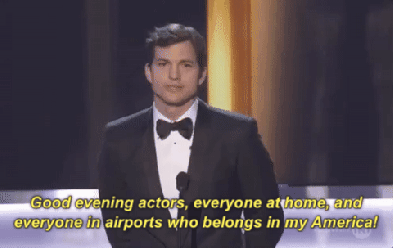 UnAmerican, and yet it was America who voted this buffoon into presidency just a few short months ago. In the face of one man’s cowardly discrimination, however, were many more acts of love and fraternity. American citizens stormed airports with signs of welcome and solidarity. Lawyers littered the floors working pro-bono around the clock. And a group of actors at the
UnAmerican, and yet it was America who voted this buffoon into presidency just a few short months ago. In the face of one man’s cowardly discrimination, however, were many more acts of love and fraternity. American citizens stormed airports with signs of welcome and solidarity. Lawyers littered the floors working pro-bono around the clock. And a group of actors at the 2012 when it was the first Iranian film to win an Oscar. This year he has toured the festivals with The Salesman, and won Best Screenplay at Cannes. Iran submitted it to be considered in the foreign film category at the Academy Awards and it won a nomination. Asghar Farhadi will not be allowed to attend the ceremony because of Trump’s “Muslim ban.” This is who his ban keeps out – not terrorists, but people who come here to work, to study, to visit friends and family.
2012 when it was the first Iranian film to win an Oscar. This year he has toured the festivals with The Salesman, and won Best Screenplay at Cannes. Iran submitted it to be considered in the foreign film category at the Academy Awards and it won a nomination. Asghar Farhadi will not be allowed to attend the ceremony because of Trump’s “Muslim ban.” This is who his ban keeps out – not terrorists, but people who come here to work, to study, to visit friends and family. citizens of the other six countries trying to legally enter the United States of America and hope that the current situation will not give rise to further divide between nations,” Farhadi said. He’s not the only one with this fear on his mind: “Our most important allies in the fight against ISIL are the vast majority of Muslims who reject its apocalyptic ideology of hatred. This executive order sends a signal, intended or not, that America does not want Muslims coming into our country. That is why we fear this executive order may do more to help terrorist recruitment than improve our security” [italics are mine]. It wasn’t Bernie Sanders or Obama who said that, it was a joint statement from two Republican senators, John McCain and Lindsey Graham.
citizens of the other six countries trying to legally enter the United States of America and hope that the current situation will not give rise to further divide between nations,” Farhadi said. He’s not the only one with this fear on his mind: “Our most important allies in the fight against ISIL are the vast majority of Muslims who reject its apocalyptic ideology of hatred. This executive order sends a signal, intended or not, that America does not want Muslims coming into our country. That is why we fear this executive order may do more to help terrorist recruitment than improve our security” [italics are mine]. It wasn’t Bernie Sanders or Obama who said that, it was a joint statement from two Republican senators, John McCain and Lindsey Graham. The Syrian family at the heart of Watani: My Homeland, another short documentary up for an Academy Award, is also unable to attend the Oscars due to the travel ban, even though they are now German citizens. But movies and stories like this, and
The Syrian family at the heart of Watani: My Homeland, another short documentary up for an Academy Award, is also unable to attend the Oscars due to the travel ban, even though they are now German citizens. But movies and stories like this, and  entertaining us, sometimes helping to tell urgently important stories. Oscar-nominated (and best supporting actor heir presumptive) Mahershala Ali is Muslim (Moonlight, Hidden Figures). Rogue One’s Riz Ahmed is Muslim. So are Dave Chapelle, Ice Cube, Mos Def, Amal Clooney, Omar Epps, Janet Jackson, Aziz Ansari, Ellen Burstyn, Muhammad Ali, Shaq, Kareem, and some of my favourite members of the Wu-Tang Clan. Muslims are not terrorists. Muslims are terrorized by terrorists, who use any reason, including religion (including Christianity) to do evil.
entertaining us, sometimes helping to tell urgently important stories. Oscar-nominated (and best supporting actor heir presumptive) Mahershala Ali is Muslim (Moonlight, Hidden Figures). Rogue One’s Riz Ahmed is Muslim. So are Dave Chapelle, Ice Cube, Mos Def, Amal Clooney, Omar Epps, Janet Jackson, Aziz Ansari, Ellen Burstyn, Muhammad Ali, Shaq, Kareem, and some of my favourite members of the Wu-Tang Clan. Muslims are not terrorists. Muslims are terrorized by terrorists, who use any reason, including religion (including Christianity) to do evil. Taraneh Alidoosti, an actress known to very few over here in the west, is boycotting the Oscars. Wouldn’t it really mean something if others did as well? If the Oscars had to broadcast hundreds of empty seats, each tagged with the name of a celebrity who didn’t come because the thought of Trump’s America was so unpalatable that it’s better to stay home than to schmooze and be lauded by one’s colleagues? If they stood in solidarity with fellow film makers who are just as deserving but are prohibited from celebrating just because of their religion? Now that’s a story worth telling; let’s continue to take part in it.
Taraneh Alidoosti, an actress known to very few over here in the west, is boycotting the Oscars. Wouldn’t it really mean something if others did as well? If the Oscars had to broadcast hundreds of empty seats, each tagged with the name of a celebrity who didn’t come because the thought of Trump’s America was so unpalatable that it’s better to stay home than to schmooze and be lauded by one’s colleagues? If they stood in solidarity with fellow film makers who are just as deserving but are prohibited from celebrating just because of their religion? Now that’s a story worth telling; let’s continue to take part in it.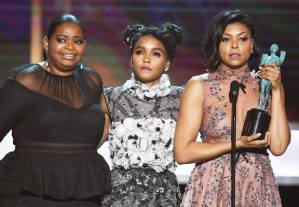 Outstanding performance by a cast was won by
Outstanding performance by a cast was won by 
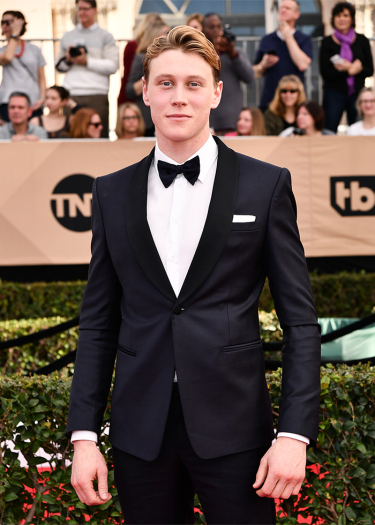
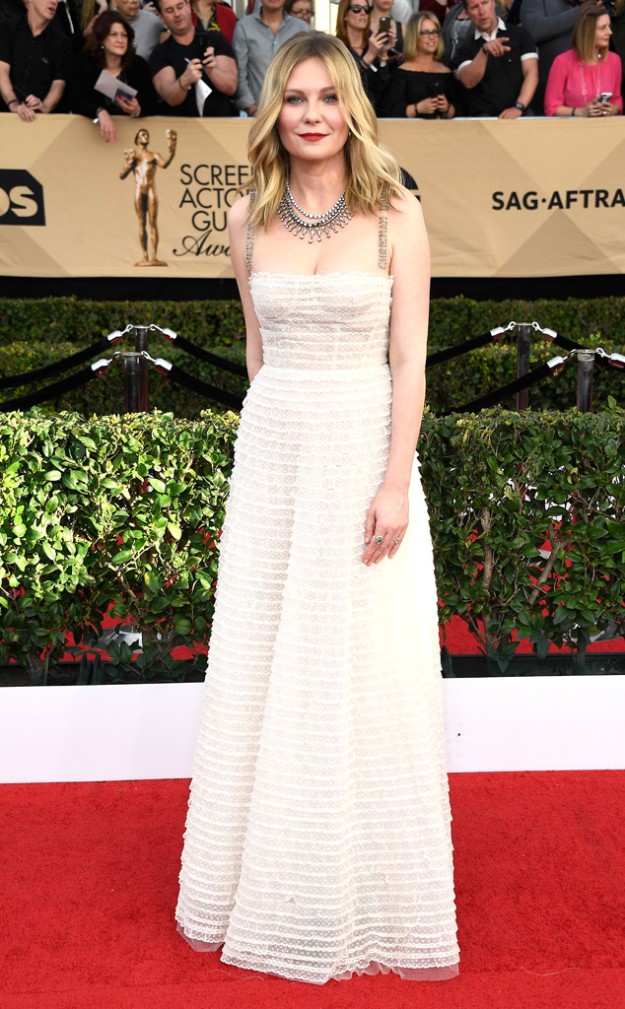
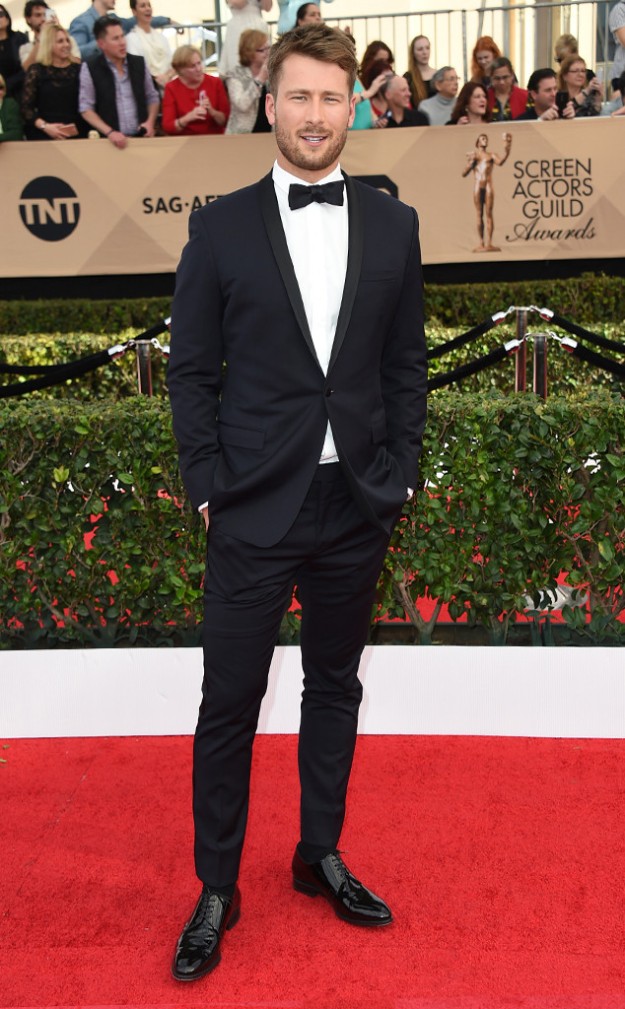
 means Casey Affleck for
means Casey Affleck for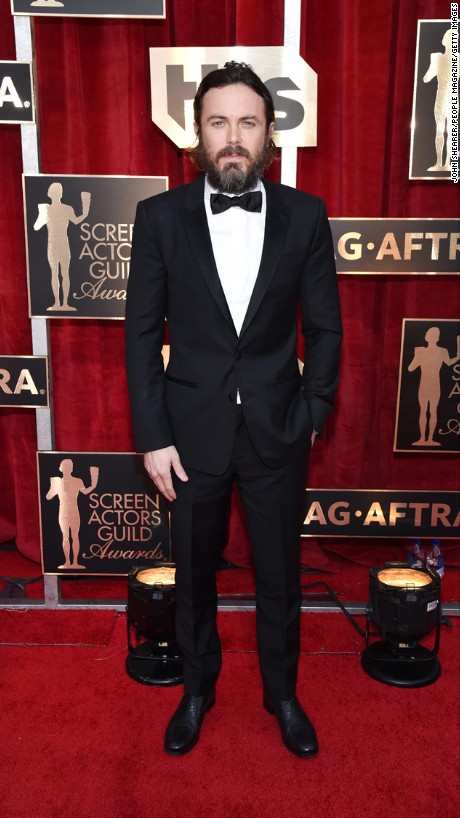
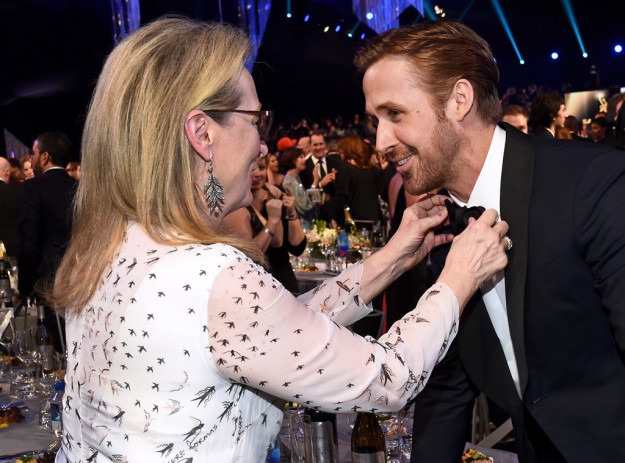

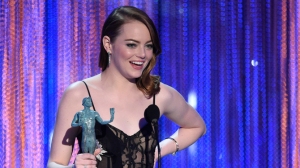


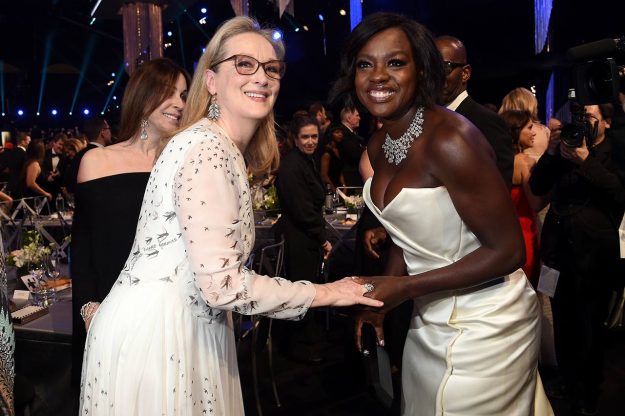
 Viola Davis won for supporting actress for
Viola Davis won for supporting actress for 
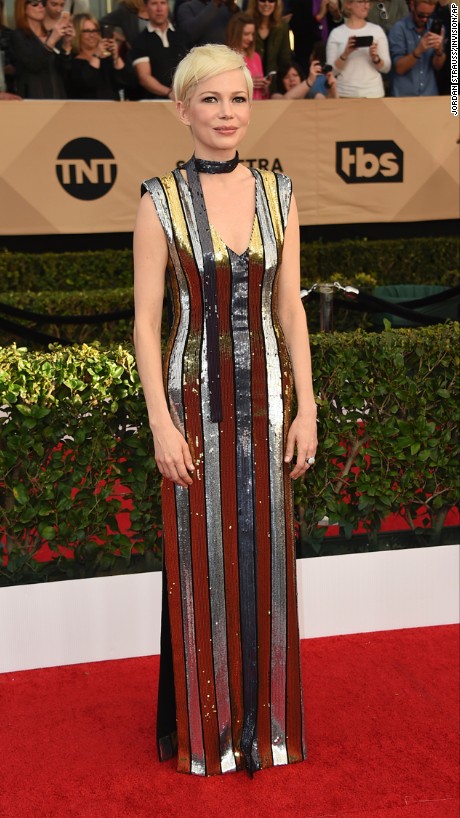



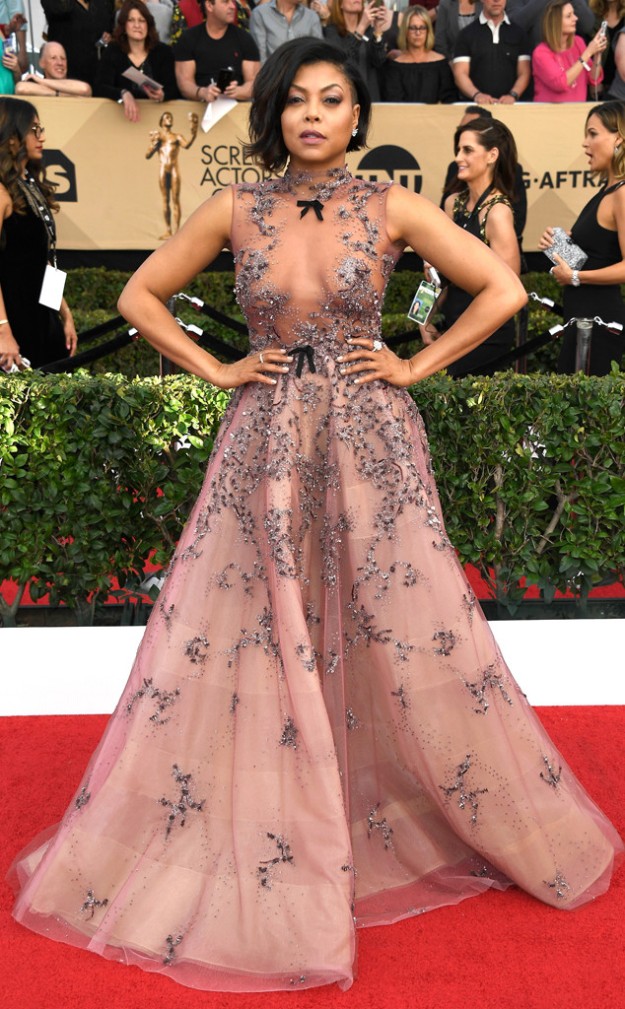

 Award, presented by Dolly Parton and Jane Fonda. Amid the many political speeches of the night, including digs against Donald Trump and his insane ban on Muslims, Tomlin quipped What sign should I make for the next march?
Award, presented by Dolly Parton and Jane Fonda. Amid the many political speeches of the night, including digs against Donald Trump and his insane ban on Muslims, Tomlin quipped What sign should I make for the next march?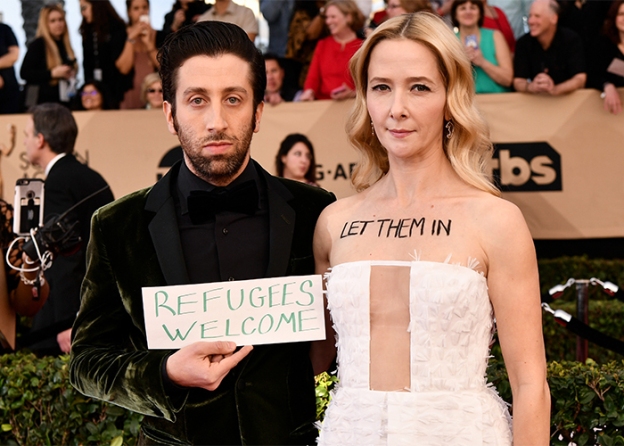
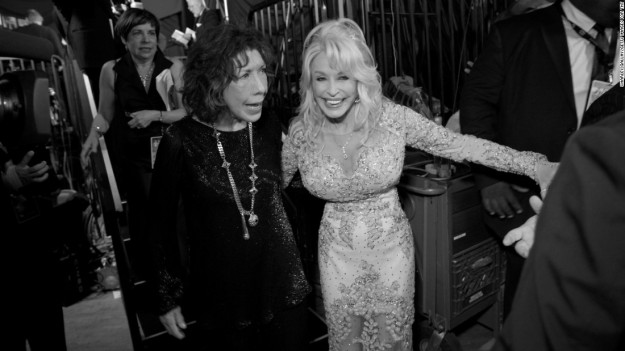


 NASA pay them equally? Not by a long shot. Treat them fairly? Not so much. Promote them? Never. But hire them they must because there’s a space race on with the Russians, and they can’t afford not to hire the best and the brightest no matter the skin colour encasing the brains.
NASA pay them equally? Not by a long shot. Treat them fairly? Not so much. Promote them? Never. But hire them they must because there’s a space race on with the Russians, and they can’t afford not to hire the best and the brightest no matter the skin colour encasing the brains. had the audience applauding. These women are so inspirational that it would be hard to mess up the story, and Hidden Figures manages not to stand in its own way. At the Toronto International Film Festival this fall, Pharrell Williams, who collaborated on the score with Hans Zimmer, gave a concert of all the original music he’d worked on for the film. I worried that he might overshadow the film, but in fact his music fits right in very comfortably, establishing the time period in a pop-heavy way.
had the audience applauding. These women are so inspirational that it would be hard to mess up the story, and Hidden Figures manages not to stand in its own way. At the Toronto International Film Festival this fall, Pharrell Williams, who collaborated on the score with Hans Zimmer, gave a concert of all the original music he’d worked on for the film. I worried that he might overshadow the film, but in fact his music fits right in very comfortably, establishing the time period in a pop-heavy way.